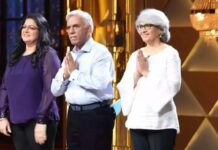Mahatma Gandhi Biography: People are still impacted by the life and tactics of the struggle of Mahatma Gandhi. A man is considered great when his life inspires others to make positive changes in the world, and Mahatma Gandhi’s life did just that. Many had profound positive life changes after reading about him decades after his death. Let’s examine Mahatma Gandhi’s life, his movements, his well-known quotes, etc.
India observes Martyr’s Day on a number of dates. Martyrs’ Day is observed on January 30 in remembrance of Mahatma Gandhi. Shaheed Diwas is another name for the day.
On January 30, at Gandhi Smriti in the Birla House, Mahatma Gandhi—the Father of the Nation—was killed. Additionally, the British executed Bhagat Singh, Shivaram Rajguru, and Sukhdev Thapar by hanging on March 23.
Mahatma Gandhi, also known as Mohandas Karamchand Gandhi, was a well-known freedom fighter and a strong, influential political figure who was crucial to India’s fight for independence from British control. He was regarded as the nation’s father as well. Of course, he also made life better for the impoverished in India. Gandhi Jayanti is observed on his birthday each year. Many were affected by his philosophy of truth and nonviolence, which Martin Luther and Nelson Mandela both embraced for their own struggles.
Since Nathuram Godse assassinated Mahatma Gandhi on January 30, this day is known as Martyr’s Day or Shaheed Diwas.
Mahatma Gandhi used nonviolent protests to voice his opposition to racial discrimination and injustices in South Africa for roughly two decades. He gained followers in India and beyond for his modest way of life. His common name was Bapu, which means “Father.”
“Losing yourself in the service of others is the best way to find yourself.” Gandhi, Mahatma
Mahatma Gandhi Biography
| Famous as | For His Philosophy of Truth and Non-violence |
| Nationality | Indian |
| Religion | Hinduism |
| Born on | 02 October 1869 AD |
| Zodiac Sign | Libra |
| Born in | Porbandar, Kathiawar Agency, British Indian Empire |
| Died on | 30 January 1948 AD |
| Place of death | New Delhi, Dominion of India |
| Eepitaphs | Hey Ram |
| Father | Karamchand Gandhi |
| Mother | Putlibai Gandhi |
| Spouse | Kasturba Gandhi |
| Children | Harilal, Manilal, Ramdas, Devdas |
| Education | University College London, Alfred High School |
| Works & Achievements | Key Role in Indian Freedom Struggle, Philosophy of Truth and Non-violence |
| Awards | 1930 – Man of the Year by Time magazine |
Mahatma Gandhi Childhood and Family History
In Porbandar, Gujarat, on October 2, 1869, he was born. Putlibai was his mother’s name, while Karamchand Gandhi was his father. Mahatma Gandhi married Kasturba in an arranged union when he was thirteen years old. Named Harilal, Manilal, Ramdas, and Devdas, these were their four sons. Up to her passing in 1944, she encouraged her husband in all of his undertakings.
In Porbandar, the capital of a minor principality in Western British India (now Gujarat State), his father held the position of Dewan, or Chief Minister. The fourth wife of Mahatma Gandhi’s father, Putlibai, was from a wealthy Vaishnava household. Let us tell you that the stories of Shravana and Harishchandra, which emphasized the value of truth, had a profound impression on him in his early years.
Mahatma Gandhi Education
Mahatma Gandhi Biography: Gandhi attended a local school in Rajkot when he was nine years old, where he was taught the fundamentals of math, geography, history, and languages. He attended a Rajkot high school when he was eleven years old. His studies were disrupted for a year or so after his wedding, and he eventually rejoined and finished his education. In 1888, he enrolled in Samaldas College in Bhavnagar, Gujarat. Afterwards, Mavji Dave Joshi, a family friend, went to London to further his education, namely to study law. Gandhiji was delighted about the London idea since he was dissatisfied with his education at Samaldas College. He persuaded his mother and wife that he would never touch drink, ladies, or non-vegetarian food.
“First they laugh at you, then they ignore you, then they fight with you, and finally you win.” Gandhi, Mahatma
Mahatma Gandhi Heading to London
To further his legal studies, Mahatma Gandhi travelled to London in 1888. Ten days after his arrival, he enrolled in the Inner Temple, one of the four legal schools in London, where he studied and began practising law. He also became a member of a vegetarian society in London, where some of his vegetarian friends exposed him to the Bhagavad Gita. Afterwards, the Bhagavad Gita left an impact and changed his course in life.
Gandhi Mahatma In South Africa
He moved to South Africa in May 1893 to practice law there. He was ejected from the first-class apartment on the train, even though he had a first-class ticket, because first class was exclusively available to white passengers; no Indian or Black person was permitted to travel in first class. This was his first-hand encounter with racial prejudice. He was deeply affected by this experience, and he made the decision to demonstrate against racial prejudice. He added that he had seen several incidents of this like against his fellow Indians, who were called coolies with contempt.
Gandhi founded the Natal Indian Congress (NIC) on May 22, 1894, and he diligently laboured to advance Indians’ rights in South Africa. Gandhi rose to prominence within the Indian community in South Africa very quickly. Ancient Indian literature known as Tirukkural was first written in Tamil and then translated into other languages. Another person who was impacted by this old book was Gandhiji. His 1906 nonviolent protest was inspired by the concept of Satyagraha, which is a devotion to truth. After living in South Africa for twenty-one years, where he undoubtedly campaigned for civil rights and underwent a complete metamorphosis, he returned to India in 1915.
Mahatma Gandhi and The Indian Independence Movement
Mahatma Gandhi Biography: Gandhiji joined the Indian National Congress in 1915 after making his permanent return to India, under the guidance of Gopal Krishna Gokhale.
In 1918, Gandhi spearheaded the Champaran and Kheda agitations in Gujarat and Bihar, marking his first significant accomplishment. In opposition to the British administration, he also led the Quit-India, Swaraj, and Civil Disobedience movements.
Mahatma Gandhi Death
Nathuram Godse killed Mohandas Karamchand Gandhi on January 30, 1948. Godse belonged to the Hindu Mahasabha and was a nationalist Hindu. He disagreed with the non-violent doctrine and charged Gandhi of favouring Pakistan.
“The change you want to see in the world has to start with you.” Gandhi, Mahatma
Mahatma Gandhi Works
Gandhi wrote a great deal. The following are a few of his literary creations:
- Hind Swaraj, which was released in Gujarati in 1909
- He edited other journals, such as Navajivan, a Gujarati weekly; Indian Opinion; Young India; and Harijan, which was published in Gujarati, Hindi, and English.
- Gandhi also penned The Story of My Experiments with Truth, his autobiography.
- His earlier memoirs covered the Indian Home Rule movement (Hind Swaraj) and the Satyagraha in South Africa.
Gandhi Mahatma Honors
- • Time Magazine awarded Gandhi the Man of the Year in 1930.
- • Gandhi was listed as one of the top 25 political figures of all time by Time magazine in 2011.
- He was nominated five times between 1937 and 1948 for the Nobel Peace Prize, but he never won it.
- The Gandhi Peace Prize was established by the Indian government to be awarded annually to notable social workers, international leaders, and ordinary people. The winner of the prize was Nelson Mandela, the spearhead of South Africa’s fight against apartheid.
“When your thoughts, words, and deeds are in harmony, you are happy.” Gandhi, Mahatma
Gandhi, Mahatma Film
Mahatma Gandhi Biography: In the 1982 film Gandhi, which took home the Academy Award for Best Picture, Ben Kingsley played Mahatma Gandhi.
As a result, Mahatma Gandhi will live on in eternity because of his advocacy of truth, nonviolence, and faith in God in addition to his fight for India’s independence. His approaches served as an inspiration to young people and leaders both inside and outside of India. He is seen as the most well-known figure in Indian history as well as the most straightforward dhoti wearer. In addition to teaching Indians how to become independent, he propagated the swaraj message.
“If a culture tries to be exclusive, it cannot survive.” Gandhi, Mahatma
“Belief is a state to grow into, not something to grasp.” Gandhi, Mahatma




